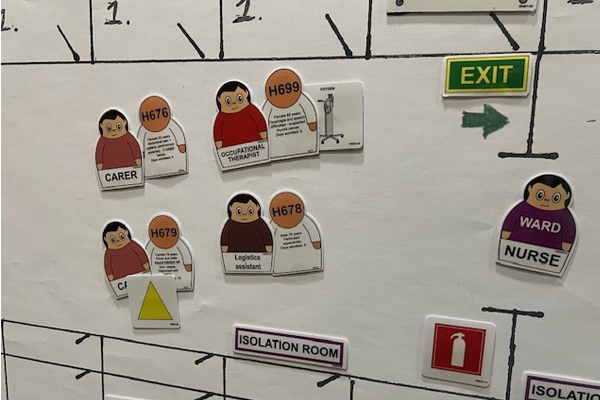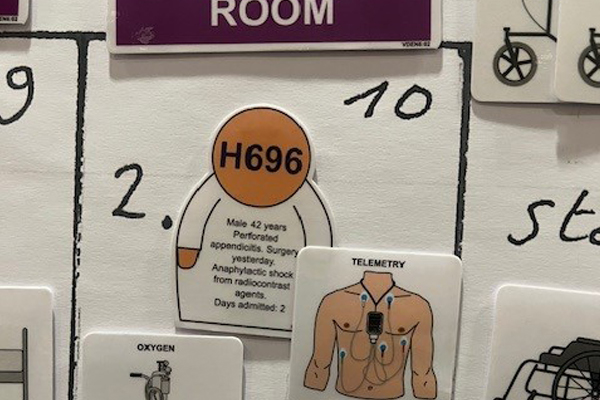During the European Society for Emergency Medicine (EuSEM) Congress in Vienna, the Hospital Disaster Preparedness Working Group conducted three Emergo Train System (ETS) simulation exercises. The exercises focused on the first thirty minutes of hospital disaster plan activation, a critical period that significantly determines the efficiency and effectiveness of the overall hospital response. This initial phase encompasses:
- the alert and notification process,
- activation of the hospital disaster plan,
- internal organization and role allocation,
- information flow and situational awareness,
- and the initial operational phase.
The educational objectives included the reinforcement of universal evacuation principles, identification of key considerations in hospital evacuation, and clarification of the roles and responsibilities of key personnel within the hospital incident command structure. Additional emphasis was placed on patient classification within the evacuation process, as well as on the efficient evacuation of inpatients, visitors, and staff.

Special attention was devoted to scenarios requiring a complete hospital evacuation, addressing conditions characterized by severe disruption and mass casualties, such as terrorist attacks, explosions, or armed conflict. These complex scenarios highlight the necessity of continuous preparedness and training among healthcare professionals and disaster management teams.

The exercises further contributed to the development of the in-hospital ward set within the ETS framework, enhancing its capacity to simulate realistic, ward-level hospital emergencies.
The initial implementation of these ETS exercises took place during the EuSEM Congress in Copenhagen, serving as a preliminary evaluation of the concept. At the Vienna Congress, the scenario was executed three times, each using a different Hospital Incident Management System (HIMS) – those of Belgium, Germany, and Spain. Consistent with best practices in hospital disaster preparedness, a back-up scenario from Portugal was also available.
While the strategic structures differed between the participating systems, the core universal principles of hospital disaster management remained constant. The exercises revealed variations in leadership approaches and key personnel roles, which stimulated valuable reflection and multinational discussion during the debriefing sessions.
Through these structured simulations, the Hospital Disaster Preparedness Working Group contributed to advancing European collaboration, training, and knowledge exchange in the field of hospital disaster preparedness and crisis response management.



